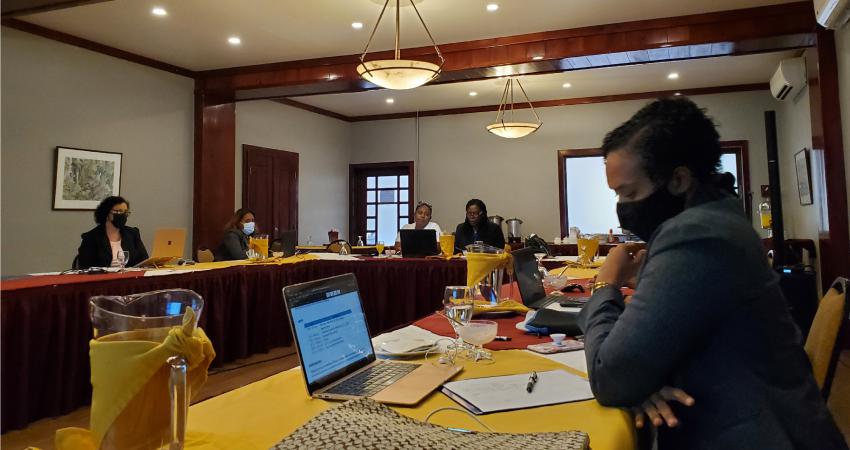Belize and Honduras join efforts to prevent trafficking in persons

On May 28, 2021, high-level authorities of Belize and Honduras gathered in a binational discussion on the challenges to fight trafficking in persons, with IOM support. Representatives of multiple government institutions participated in this event that highlighted the interinstitutional response needed to prevent and combat trafficking in persons.
In recent years, the Anti-Trafficking in Persons Council of Belize (A-TIPS) has noticed an increase in the number of Honduran women and minors rescued in Belize. In most cases, the women and minors are victims of sexual exploitation by Honduran nationals. Therefore, the A-TIP’s Council has identified the need to strengthen coordination mechanisms with counterparts in Honduras.
The session aimed at strengthening coordination mechanisms between Belize and Honduras to prevent human trafficking and provide support and protection to suspected and identified victims in a strategic and organized manner. Furthermore, it was a ripe opportunity for knowledge exchange, analyzing trends and dynamics of the crime, as well as to identify support services offered by both countries and establishing a roadmap for counterparts related to protection of victims.
Among the participants were both countries’ ministries of Foreign Affairs and their respective embassies. For Belize, there were representatives of the Department of Human Services, Department of Border Management and Immigration Services, A-TIPS and the Anti-Trafficking in Persons Police Unit. On Honduras’ part, the National Migration Institute, the Inter-institutional Commission against Commercial Sexual Exploitation and Trafficking in Persons (CICESCT), the Attorney’s Office and the Directorate for Children, Youth and Family (DINAF) participated.
The Regional Coalition against Human Trafficking and Migrant Smuggling (CORETT) participated as a regional partner.
This activity is supported by IOM under the Western Hemisphere Program, funded by the U.S. Department of State Bureau of Population, Refugees and Migration.